Introduction
Discover the hidden health secrets in your guinea pig's poop! As a guinea pig parent, understanding these little clues is crucial for detecting health issues, especially since these adorable pets are masters at hiding their illnesses. This guide not only dives into the intriguing world of guinea pig poop but also offers insights on their overall wellbeing.
Our Premium GuineaDad Liner, designed for optimal health monitoring, makes detecting changes in your guinea pig's poop easier, aiding in timely care and wellbeing.
Don't forget to check out our comprehensive Guinea Pig Pee Chart for a complete health monitoring toolkit. Let's start by setting up the right habitat for easy detection and dive into what different types of poop can reveal about your furry friend's health.
(Note: This post was originally published on 5/15/2020 and has been completely updated and revised for accuracy and comprehensiveness as of 1/29/2024.)
Guinea Pig Poop: 7 Different Types and What They Mean
1. Small, Dry Poop

Small and dry poop (even immediately after coming out of their booties) could be a sign of dehydration.
Why Dehydration is Harmful to Guinea Pigs
Guinea pigs should dink 10% of their body weight in water, and can only last 24 hours without any water (time is dependent on climate). When guinea pigs are dehydrated they may start having low energy and become clumsy. Another symptom may be that they start to develop a fever and also have a loss of appetite. These all could eventually lead to life threatening situations if not treated right away, so it is essential that guinea pigs are drinking adequate amounts of water daily.
What to do When Guinea Pigs Poop is Small and Dry
If you have a water bottle, make sure your guinea pigs know how to use it. You can click on the nozzle tip to show them how it works, and make sure they try it themselves before leaving them with it. Once they start drinking from the bottle, make sure the air bubble rises from the bottom, as this indicates the water is coming out.
If you have a water bowl, make sure the water is clean and changed often. Guinea pigs will sometimes run or scurry across the cage or their living area. This could mean some of the poop could get into the water, contaminating it. If the water is contaminated, the guinea pig might be less willing to drink, which then can lead to dry poop. It’s a vicious poopy circle.
Once you start seeing this symptom, add cucumber for the vegetable supplement (general rule of thumb is to provide one cup of mixed vegetable per day per guinea pig). The cucumber has a limited amount of nutrients, but it contains a lot of water. This will help hydrate your guinea pig!
2. Dry, Tear Shaped Poop

If the poop is tear-shaped, it could be an indicator of a gut problem.
Why Not Consuming Enough Hay is Harmful to Guinea Pigs
Guinea pigs should be eating as much hay as their own body. The fiber found in hay is an essential part of their diet so that guinea pig’s digestive system are functioning properly. Another issue that could arise from guinea pigs not having access to hay is their dental health may be affected. As guinea pigs consume hay it allows them to wear down their teeth as well.
What to do When Guinea Pigs Poop is Tear Shaped
Providing guinea pigs with Timothy hay or Orchard hay, is pivotal for their health.The key is to always have clean, fresh, and abundant amounts of hay available – I am not talking about in a bowl but in a huge pile. GuineaDad’s Nourish Series – Timothy Hay is a perfect example. It is designed so that your guinea pigs are always guaranteed to have fresh hay available. The packaging doubles as a hay rack. Not being on the ground means the hay will stay clean without being soiled by guinea pig poop and urine.
What to Do If Your Guinea Pig Is Not Eating
If your guinea pig is being a picky eater, there are certain measures guinea parents can take. One thing that I like to do is to offer them both Timothy hay and Orchard hay. Orchard hay is sweeter and more aromatic than timothy hay, which usually solves the problem of guinea pigs not eating hay.
Another method is to add hay toppers! You could use any of Guinea Dad’s Nourish Series healthy treats for guinea pigs and sprinkle it on top of the hay to entice guinea pigs to forage through the hay for the herbal supplements. By providing guinea pigs with diverse foods it may deter their picky eating habits.

Click the photo above to see more about the best hay for guinea pigs.
3. Clumped Poop

Clumped poop, big poop, and blocked poop could be an indicator of a gut problem or point to aging rectal muscles in your guinea pig.
What to do When Guinea Pigs Have Clumped Poop
On top of my previous two recommendations (abundant hay and sufficient hydration), you should avoid feeding your guinea pigs grain. That means no bread, chips, rice, seeds, granola etc. The most essential elements in guinea pig diet are clean water, fresh guinea pig hay, and supplement (i.e. fresh vegetables).
If your guinea pig is constipated, you may observe the guinea pig is uncomfortable during pooping or is acting like he’s pooping but nothing comes out. If the problem persists more than a day, I highly recommend visiting an exotic vet who specializes in small animals, including guinea pigs as soon as you can. Until your appointment, you could try the following.
Try to apply a small amount of coconut oil using a cotton-tipped applicator or your hand to sufficiently lubricate their booty. Continue to provide abundant amounts of high-fiber grass hay, like Timothy hay, and water. To encourage drinking more water, you could also add a small amount of unsweetened cranberry juice to their water. The rule of thumb is to dilute cranberry juice with enough water to look barely pink (much more water than cranberry juice). Make sure you only give this for a day and clean the bottle thoroughly to not have any cranberry taste in the future.
To ensure the well-being of your guinea pigs, providing ample hay and promoting exercise are key steps. Using the right bedding is also crucial. The Premium GuineaDad Liner not only offers a comfortable environment but also encourages exercise, contributing to the overall health and happiness of your guinea pigs.
4. Green Poop

This type of poop would be called the cecal pellets.
What to do When Guinea Pigs Poop is Green
Greenish poop may be cecal pellets, which the guinea pig re-ingests for nutritional health.
What exactly is cecal pellets? Guinea pigs are coprophagic, meaning that they consume their own feces as part of their normal digestive process. The cecal pellets are an essential part of maintaining guinea pigs’ health because of the nutrients found in it. The pellets contain double the protein and half the fiber of normal poops, and have the beneficial bacteria that helps to maintain normal flora.
So the next time you see your guinea pigs bending over and eating something that’s coming out of his butt, don’t be shocked! This is completely healthy and normal for the guinea pig to maintain their health.
5. Smelly, Soft, Mushy Poop

Smelly and/or wet poop may point to a nutritional or diet problem, or even worse diarrhea.
How Diarrhea is Harmful to Guinea Pigs
Guinea pigs that are having diarrhea may have other complications such as lethargy, dehydration, loss of appetite, and in severe cases low body temperature. Diarrhea is something that needs to be treated immediately as it can lead to death in severe cases.
What to do if Guinea Pigs Poop is Smelly, Soft and Mushy
First, make sure your guinea pigs are sufficiently hydrated – refer to small, dry poop suggestions. Second, provide an abundant amount of hay (piles of hay, not a bowl of it) to allow guinea pig’s gut to work properly (fiber, which can be found in abundance in hay, is essential to healthy digestive systems). The key is always to have clean and abundant hay available.
Again, this is why we developed GuineaDad’s guinea pig Timothy Hay and Orchard Grass for guinea pigs. It is designed so your guinea pigs are always guaranteed to have fresh high-fiber available. The packaging doubles as a hay rack, which reduces the chance of hay becoming soiled by soft guinea pig poop and urine.
Lastly, provide fresh vegetables, but not too much. Fresh vegetables are like supplements, not the main source of nutrition. The main diet source for guinea pig should be the fresh grass hay. The general rule of thumb is to have 1 cup of vegetables per day per guinea pig.
Ensuring that guinea pigs have enough roughage in a guinea pigs diet can prevent situations such as diarrhea from occurring.
6. Bloody Poop

There could be serious mechanical obstruction, inflammation or tear in the anus or intestinal system.
You need to see a vet immediately!
7. Healthy Poop

What Does Normal Guinea Pig Poop Look Like?
Healthy guinea pig poop color tends to usually be medium to dark brown (somewhere between brown and black). A normal guinea pig poop should be uniform in consistency and oval-shaped. They shouldn’t break into pieces when guinea pigs step on them but at the same time shouldn’t be dry. The texture may feel a little grainy due to the hay that they digest. In terms of smell, surprisingly guinea pigs poop is not actually smelly.
How to Prevent Abnormal Poop
The key to ensuring guinea pigs have a healthy digestive system is to ensure that guinea pigs have their unlimited supply of hay. As mentioned multiple times throughout the post, the best Timothy Hay for guinea pigs and the best Orchard Hay for Guinea Pigs was designed and implemented to prevent situations in which guinea pigs would ever run out of hay. Having hay, their staple diet, available at all times, does wonders to keeping guinea pigs digestive system healthy and at optimal shape.
Conclusion
As you can see there are different types of unhealthy poop that can indicate different health issues. I hope this guide helps you keep your guinea pig healthy and happy. If you thought this post was helpful, please comment below and share with your friends using the social media icon below!
We have summarized the points mentioned above with our infographic which you can download when you sign up for our newsletter!
Check out our GuineaDad Nourish Series Guinea Pig Timothy Hay and Guinea Pig Pee Chart today!











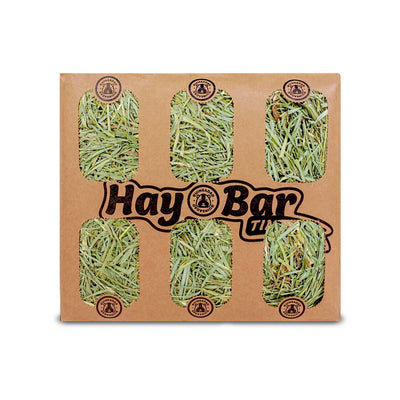
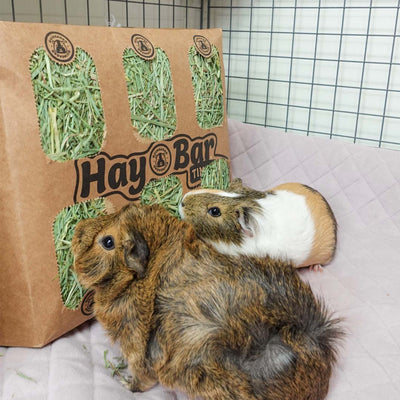
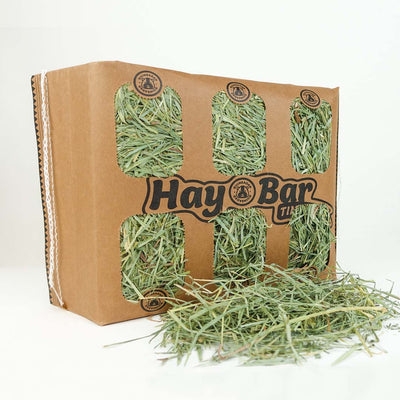
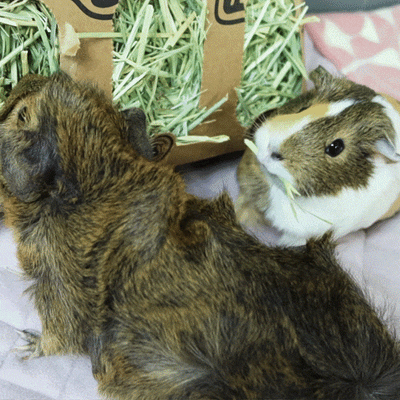
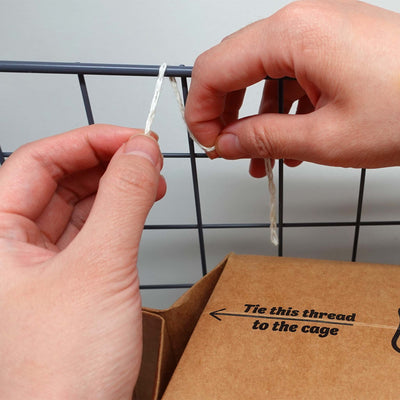
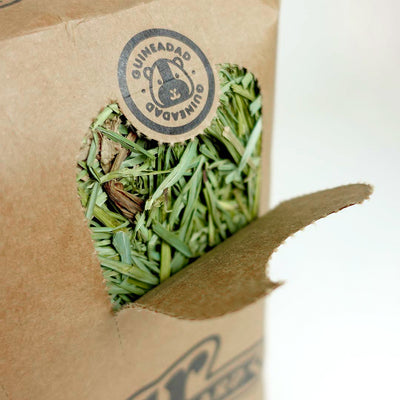
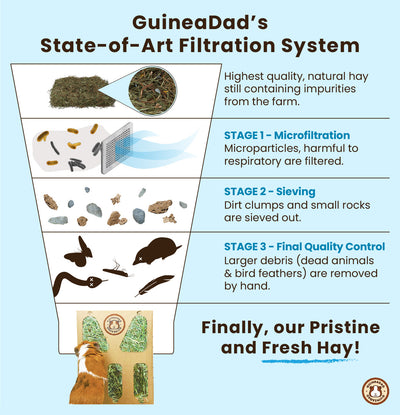
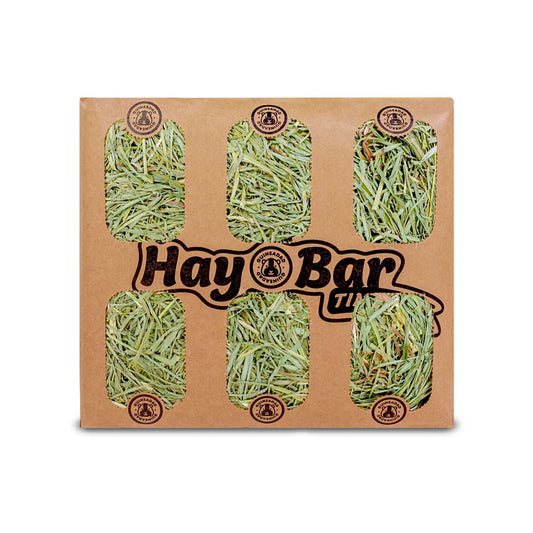
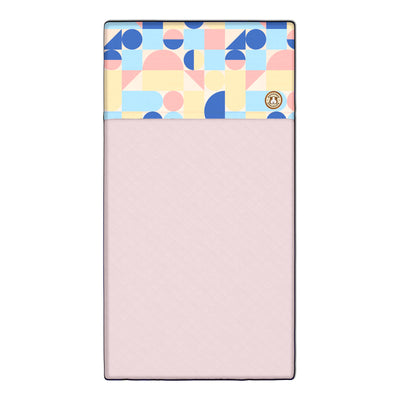








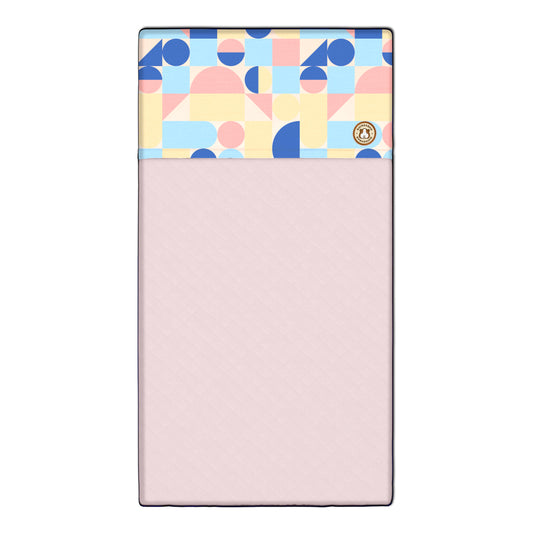


















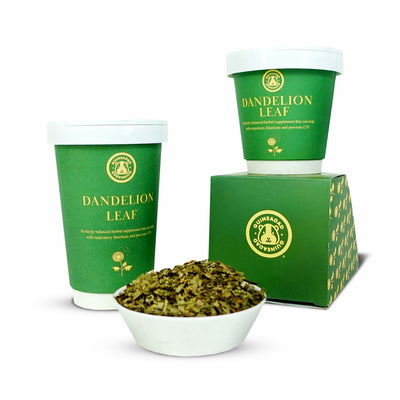
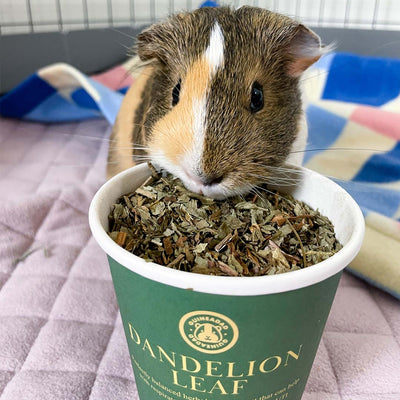
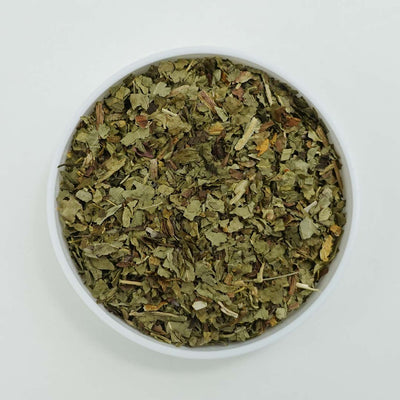
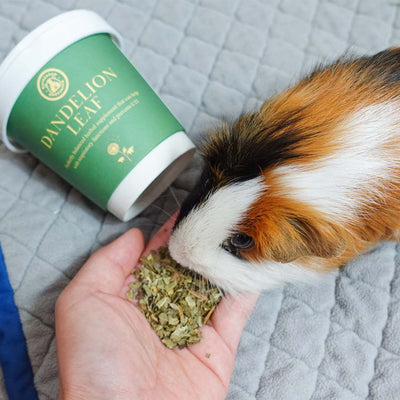
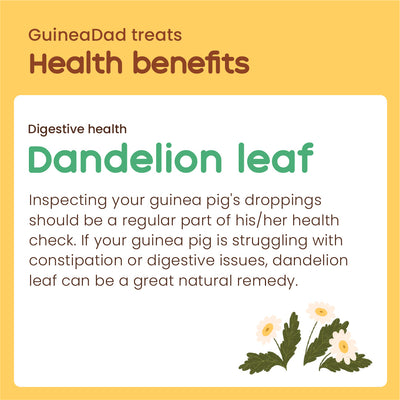
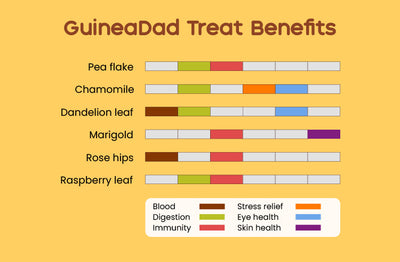
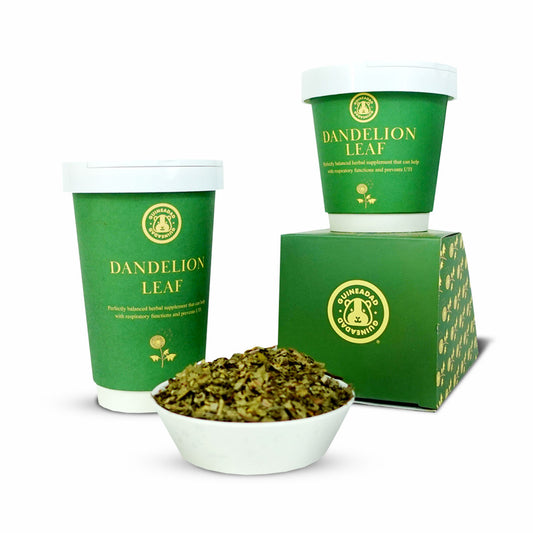
24 comments
Check their teeth to make sure they are not too long. Sometimes they eat less because their teeth hurt or they dribble out the food instead of swallowing it. Go to an exotics vet so you can be sure the molars are ok. I recently lost a piggy to horrible, painful tooth problem—incisors and molars. Any time a piggy is losing weight without an obvious sign it is an emergency vet visit.
This was very helpful to keep up with my piggy’s health! They both love you Pea flakes and I will be buying more for them soon.
Are grapes and or strawberries safe to give guinea pigs?
This was very helpful and informative. I appreciate everything you guys send out to provide me with more guinea pig education!
My piggies poop is the normal, healthy shape, but is slimy to touch when fresh. When the piggies step on them, they lose their shape.